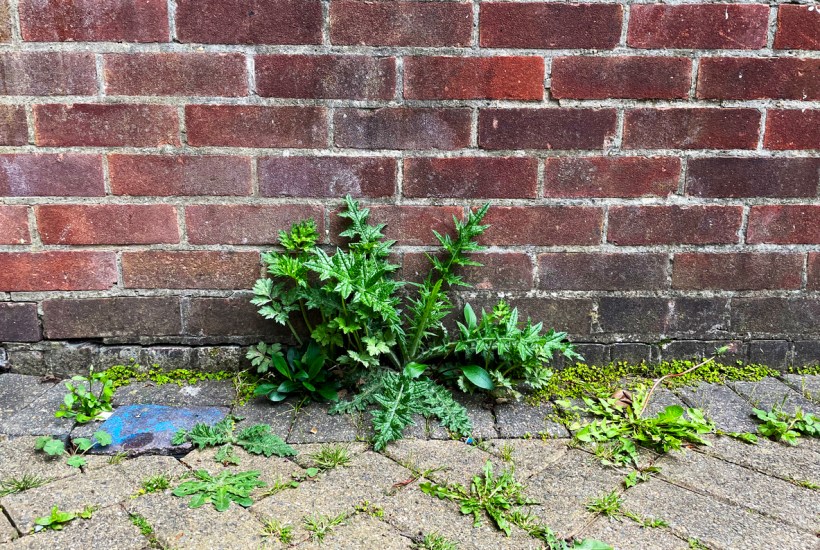There’s a ghastly predictability to the news that the University of Sussex – in Brighton, naturally – wants to set aside nearly half of its land for ‘rewilding’. According to our local paper, the Argus :
‘The University of Sussex will rewild 42 per cent of its campus land in a move which aims to promote more biodiversity, achieved by designating land into areas where the grass will be cut a limited number of times a year as well as other areas where no mowing will take place. Vice-chancellor Professor Sasha Rosenail said: “The loss of nature should be of crucial concern to every inhabitant of our planet…universities, particularly those fortunate to have large, non-urban campuses, can and should play a leading role in guiding nature’s recovery”.’
If Marie Antoinette was around today, she wouldn’t be playing at milkmaids – she’d be demanding that wolves and bears be allowed to fight to the death at your local petting zoo.
The comments section – where the traditional roustabout side of Brighton makes its plain-speaking presence felt – was less than enthusiastic. Some pointed out that as the campus is adjacent to the South Downs (an area of outstanding national beauty) it’s teeming with biodiversity anyhow; talk about taking coleanthus to Lewes castle. Several commentators believe that this is just an attempt to save money on maintenance; ‘Teenagers rewild their rooms by never cleaning them – lots of bio-diversity in there!’
You can’t blame us for being cynical. This is, after all, Brighton where the Labour (and then Green) council banned certain pesticides and allowed weeds to reclaim hundreds of miles of pavement – to the extent that old ladies ended up in hospital after nasty falls and dog-owners were forced to cover their pets’ heads with snoods lest the nasty seed-spears which lurked in the ‘bio-diverse’ foxtail barley grass become lodged in their ears or paws. These need to be removed by vets at the cost of hundreds of pounds, as in the case of Molly the rescue dog whose owner Adam Page said ‘She was crying and shaking her head in pain, it was horrible to see… these seeds are everywhere, with weeds over the pavement and verges.’
A councillor from the Labour group which took over ten weeks ago said that four years of rewilding the sidewalks of Brighton and Hove would take a long time to put right, weeds having caused lasting damage to the pavements and making many of them impassable for the elderly and disabled.
In Green Brighton, rewilding was also expressed through allowing public conveniences to return to a ‘natural’ state without the modern curses of toilet paper or liquid soap; this was the logical conclusion of the nature-worship which effectively leads to misanthropy, as people are seen as little more than a blight on the landscape.
We got their number, and we showed the Greens the door. But the attempts to carry out the misguided policy of rewilding continue nationally. As I wrote here in 2020: ‘“Wild” used to be one of my favourite words. It was in all the songs I loved best — ‘Walk on the Wild Side’, ‘Wild Thing’, ‘Born to Be Wild’. How times have changed. Wild — once meaning brave, bold, reckless — is now yet another sanctimonious nag.’
I wrote this when rewilding was being crowbarred into the new-model Archers, which at first struck me as unfeasible when a conservative-minded old lady, Peggy Archer, gave half a million pounds to a rewinding project. But on second thoughts it did make sense, as the Archer matriarch is wealthy – and rewilding is definitely the shiny new toy of those with more money than sense.
If Marie Antoinette was around today, she wouldn’t be playing at milkmaids – she’d be demanding that wolves and bears be allowed to fight to the death at your local petting zoo. Though its propagandists try to cosy-up their pet project as some Arcadian vision of kiddies skipping about making daisy chains, the originators were somewhat more honest. In a paper published in 1998, the biologists Michael Soule and Reed Noss established rewilding as being based on the ‘3Cs’ – cores, corridors and carnivores. The first two won’t be scaring the horses but the third should make us all choke on our self-righteous organic muesli. Rewilders believe that, ultimately, ‘large predators’ should play regulatory rules in ecosystems. Talk about a rich man’s plaything – have George Monbiot and Zac Goldsmith never seen Jurassic Park?
Goldsmith’s younger brother Ben, a multi-millionaire farmer, has form on riding roughshod over the objections of boring old humans. In 2020 Goldsmith the Younger was investigated after being accused by neighbouring farmers of releasing wild boar from his land, something he denied and dismissed as ‘a bit of a Vicar of Dibley-style local ding-dong.’ But rich landowners as a whole are disastrously prone to pushing around tenant farmers as part of their grandiose visions. Last year NFU vice-president Tom Bradshaw said: ‘We’re hearing that some landlords are saying they don’t need tenants and they are going to be putting the land into nature recovery. Where does that leave the tenants?’ Let them eat kale! Around this time Ed Sheeran announced that he planned to purchase farmland to plant ‘as many trees as possible’ to offset his carbon footprint after years of flying, leading Jono Dixon, a farmer in East Yorkshire, to tell the Mail ’I’m sick to death of this tree planting rewilding mumbo-jumbo malarkey. We seem to be surrounded by a bunch of complete utter imbeciles who think they know everything but actually no nowt at all’.
I’ll say. It’s all oohing and ahhing when the cute critters rock up – Mayor Khan has arranged for a pair of Eurasian beavers to arrive in Ealing this autumn – but the when they’ve got their paws under the table, you’d better start looking over your shoulder for the big boys, as Christopher Snowdon pointed out when writing about wolves here:
‘George Monbiot is probably right when he says that city dwellers enjoy an occasional frisson of excitement from thinking that wolves are on the prowl somewhere, but this seems an insufficient reason to overrule the wishes of people in villages who will have to ‘co-exist’ with them. Rural management should not be dictated by whatever makes townies feel edgy.’
It’s not just humans who suffer from rewilding; the darts which the Greens brought to the Brighton streets injure not just domestic animals but foxes and badgers too. Scotland’s largest landowners, the Danish billionaires Anders and Anne Holch Povlsen, have had red deer culled in order to plant trees. What sort of idiot prefers trees to deer? Maybe George Monbiot, who once proposed that Britain’s uplands should be cleared of ‘the white plague’ — the animals formerly known as sheep. Many clowns dream of bringing bears back, which anyone who has ever found one hanging out by their American friend’s swimming pool will know is not a good idea at all.
But it’s consistent, because rewilding is an attempt to go back in time. Not just physically to when carnivores ruled the earth, but politically too, before messy old democracy, when the wolves ate the lambs – or took the virginities of their brides, with droit du seigneur, as a matter of course. Before pesky people and their petty desire to have a decent standard of living caused human habitats to blight the landscape.
Rewilding is the end result of stinginess and snobbishness – two of the worst human traits, so when you find them combined, you just know the idea will be a stinker. Rewilders remind me of those rich people who call for the defunding the police from inside their – privately policed – gated communities. Yes, the farmers and the herbicides aren’t perfect. But without them, only savagery and survival of the fittest – or in the case of rewilding, the richest – awaits.
Got something to add? Join the discussion and comment below.
Get 10 issues for just $10
Subscribe to The Spectator Australia today for the next 10 magazine issues, plus full online access, for just $10.





















Comments
Don't miss out
Join the conversation with other Spectator Australia readers. Subscribe to leave a comment.
SUBSCRIBEAlready a subscriber? Log in